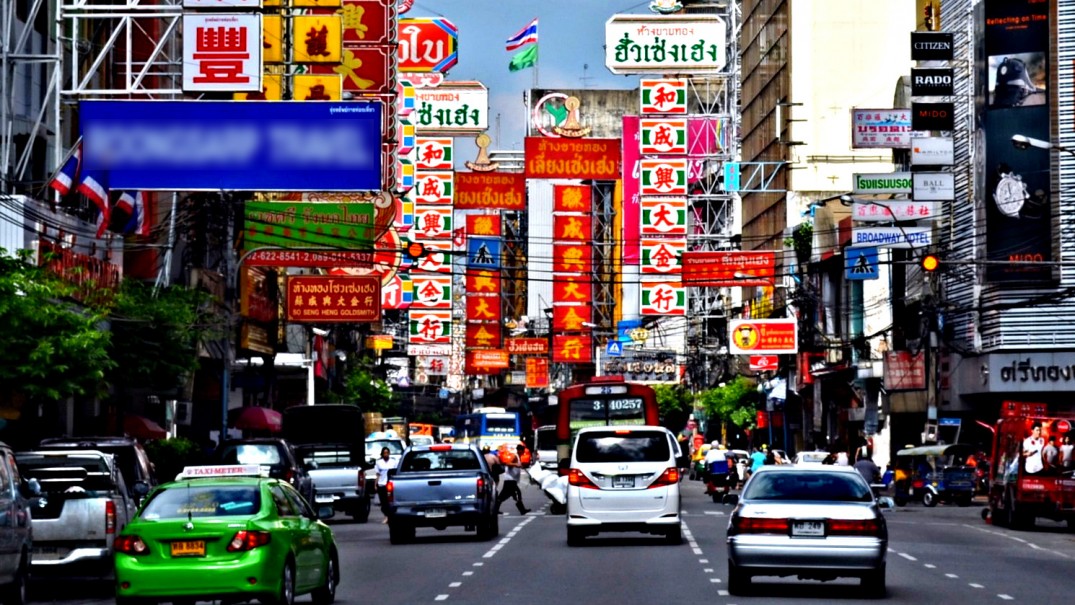
Unlike other countries in Southeast Asia that forged their national identity in the fight against Western colonialism, Thailand has long accommodated both its culture as well as that of an entrenched Chinese immigrant population.
The country’s history of assimilating Chinese foreigners could be a model for the modern world, where globalisation has led to many people having multiple, and often cross-border, loyalties, said panelists at the launch of a new book, Divided Loyalties: A History of the Overseas Chinese in Siam, held at the Lee Kuan Yew School of Public Policy on May 3, 2016.
Written by husband-and-wife team Mr Jefferey Sng and Mrs Pimpraphai Bisalputra, the book explores the complex and sometimes tumultuous history of Chinese immigrants in Thailand, formerly known as Siam.
“Underneath the veneer of Thai culture and civilisation lies an entrenched and deep-seated Chinese influence in Thailand,” said Mr Sng, an author who has lived for more than 30 years in Bangkok and written many articles on the Chinese diaspora in Thailand. “In fact, Thailand has always maintained an assimilation policy, and never closed the door to Chinese immigration except for a brief window under the Plaek Phibunsongkhram government.”
A complicated relationship
Since the days of King Taksin, who ruled Thailand between 1767 and 1782, large numbers of Chinese immigrants have contributed to the country’s labour force and taxes. Between 1825 and 1910 alone, the Chinese population in Thailand more than tripled from 230,000 to 792,000. Thailand is now home to one of the largest overseas Chinese communities in the world.
In the beginning, the Chinese foreigners and the Thai enjoyed a mostly harmonious relationship. By the early 1900s, however, tensions between the two groups had begun to simmer. In 1910, the Chinese launched a general strike to protest an increase in the tax levied on them. The strike shut down Bangkok for three days, and exposed the control they had over the economy. “The Thai began to see the Chinese in a different light, as a threat to the ruling order and a potential fifth column,” said Mr Sng.
Other factors contributed to the growing alienation between the Chinese immigrants and their hosts. In 1911, revolutionaries in China overthrew that country’s last imperial dynasty and established the Republic of China. The Chinese in Thailand, euphoric over the development, began to feel more nationalistic about their home country and separate from their adopted one.
Even more consequentially, Chinese women began to migrate to Thailand in much larger numbers after the fall of the dynasty. Mr Sng explained the impact: “In the past, the Chinese man in Thailand married a Thai woman. He moved into a Thai home and set up a Thai family. Now, the Chinese man married a Chinese woman and they set up a Chinese family. The Thai began to see the Chinese as aliens in their midst, living in separate, inassimilable Chinese communities whose loyalty to their host country was suspect.”
Learning to live together
Still, Thailand adapted to the changed circumstances instead of expelling the immigrants or shutting the door on future ones. By the late 1800s, Western governments, alarmed at the flow of Chinese migrants across the world, had enacted racially exclusive laws. Western advisors to Thailand’s King Chulalongkorn, who ruled from 1868 to 1910, had recommended that he do the same.
“Despite all the ups and downs between the Thais and the Chinese immigrants, however, Thailand never adopted the racial exclusion policies. That is truly amazing,” said Mr Sng.
In fact, the Thai kings acknowledged that the Chinese held different beliefs from the Thai, noted Mrs Bisalputra, who has published extensively on the Chinese diaspora and Thailand in the Thai language. She is also a council member of the Siam Society, which promotes knowledge of Thailand, and The Ayutthaya History Committee.
The Thai government, for instance, set up separate courts so Chinese families can follow their custom of allowing only male heirs to inherit a dead person’s wealth. In Thailand, women have equal claim to an inheritance as men.
Professor Wang Gungwu, Chairman, Governing Booard of LKY School and a renowned historian of Asia, said that such acceptance of disparate beliefs will become increasingly crucial across the world.
He said: “The Thai have, over hundreds of years, recognised and practiced among themselves an innate acceptance of multiple loyalties as perfectly normal. I think this will have to be the new norm for a world that is getting smaller and smaller, and where we have much closer contact with one another, with our modern transportation and communications and the Internet.”
This article is written as an opinion piece for the Divided Loyalties: A History of the Overseas Chinese in Siam Book Launch which took place at the Lee Kuan Yew School of Public Policy on 03 May 2016.